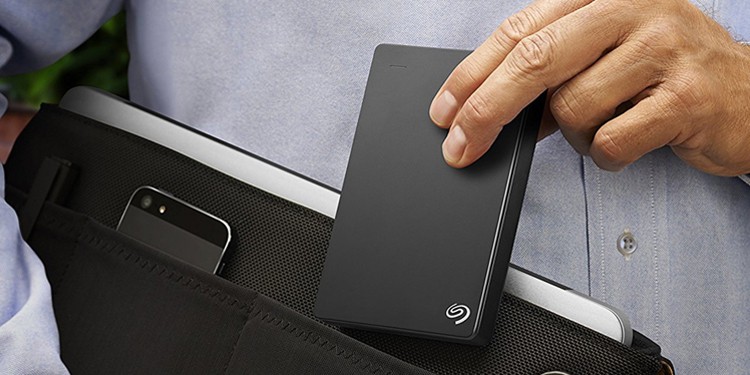What Is An External Hard Drive?

Table of Contents
There are many parts to a computer and sometimes trying to work out and explain what each of those parts are can get a bit confusing. One of the most important parts of a computer is a hard drive. And as well as internal drives, there are also external hard drives. But what are both of these things?

In this article, we'll be explaining what an external hard drive is and hopefully, you'll go away with the information you need to be able to explain it to other people!
Prime Day is finally here! Find all the biggest tech and PC deals below.
- Sapphire 11348-03-20G Pulse AMD Radeon™ RX 9070 XT Was $779 Now $739
- AMD Ryzen 7 7800X3D 8-Core, 16-Thread Desktop Processor Was $449 Now $341
- ASUS RTX™ 5060 OC Edition Graphics Card Was $379 Now $339
- LG 77-Inch Class OLED evo AI 4K C5 Series Smart TV Was $3,696 Now $2,796
- Intel® Core™ i7-14700K New Gaming Desktop Was $320.99 Now $274
- Lexar 2TB NM1090 w/HeatSink SSD PCIe Gen5x4 NVMe M.2 Was $281.97 Now $214.98
- Apple Watch Series 10 GPS + Cellular 42mm case Smartwatch Was $499.99 Now $379.99
- ASUS ROG Strix G16 (2025) 16" FHD, RTX 5060 gaming laptop Was $1,499.99 Now $1,274.99
- Apple iPad mini (A17 Pro): Apple Intelligence Was $499.99 Now $379.99
*Prices and savings subject to change. Click through to get the current prices.
What Is A Hard Drive?
So to start off, let's get into what a standard hard drive is.
A hard drive is a part of a computer that sorts the operating system (or OS for short), data files (such as documents), any applications found on the computer, pictures, and music. Basically, anything file that exists on the computer.
Hard drives can hold a great deal of information and your computer isn't going to function without one. Most hard drives are quite cheap as well, so if you need to replace one, you don't have to spend too much money replacing them.
There are drawbacks to a hard drive though. The biggest drawback is if they suddenly stop working and you haven't backed up any of the data from your computer, you'll potentially lose that data forever.
If the hard drive can be fixed, or data recovered, some of it may be saved. But it is always better to backup just in case.
Another drawback hard drives have is that they can be quite slow, especially when you're opening very large files or applications, and particularly compared to SSDs (solid state drives).
What Is An External Hard Drive?
An external hard drive is pretty much exactly the same as a normal hard drive, but it isn't connected inside a computer.
External hard drives usually come as a separate unit, can be quite small, and can hold a large quantity of data. They are usually attached to the computer via USB and can be disconnected and reconnected whenever the user sees fit.
External hard drives are great for extra storage or for keeping any important files on. If your internal computer hard drive ever fails or corrupts, anything that is stored on your external hard drive will be safe.
Because of that, if you have a lot of files that you consider to be important, it's in your best interest to invest in an external hard drive. They are the best backup devices for a computer and you can save you a lot of time and hassle if anything ever happens to your computer.
But just like an internal hard drive, external hard drives do have their drawbacks.
Both normal hard drives and external hard drives can get hot and overheat, and this can sometimes cause issues to both your computer and your hard drives. Plus, because hard drives function mechanically, they are more prone to fault than SSDs.
Additionally, because external hard drives aren’t part of your computer, and can be detached and moved, you can lose them if you aren't careful. It’s always best to keep your external hard drive in a safe, secure place when it's not in use.
Conclusion
External hard drives are a good investment should you need a backup solution to be kept separate from your computer.
But remember, you need to look after an external hard drive and keep it safe and secure too.

